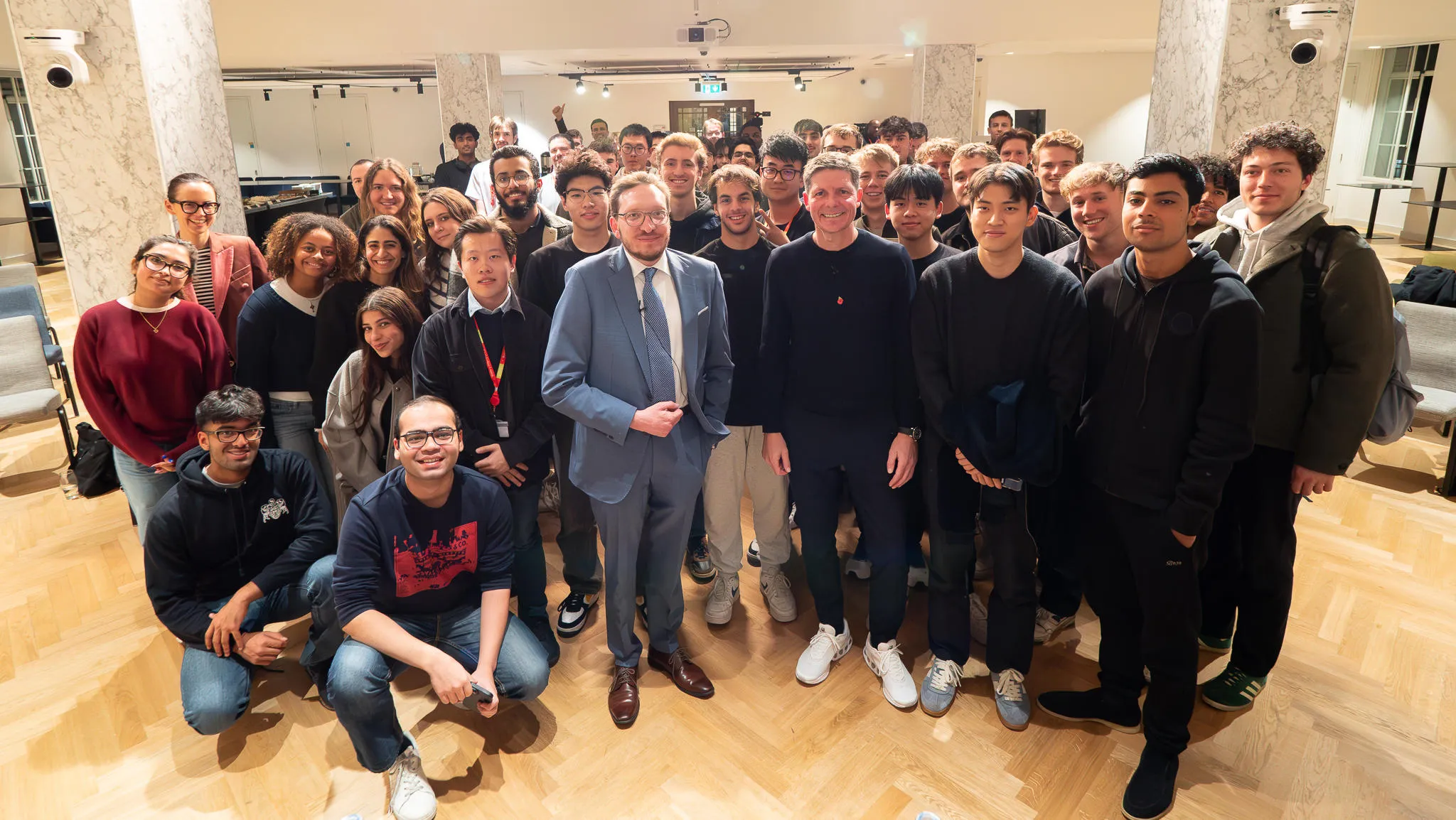The most important thing for a manager is that you like and love people… you have to feel everyone is worth talking to, because every individual regardless whether old, young, which culture, which country, which religion; everybody wants to be seen.
08 November 2024
Leadership Lessons from the Premier League: In Conversation with Crystal Palace FC's Oliver Glasner
Crystal Palace FC Manager Oliver Glasner’s coaching career has taken him from a team of local nine year olds, to the Premier League, where in 2023/24 he helped Crystal Palace men’s team to equal their previous best Premier League performance. This week he joined King’s Business School students to pass on what he has learned about leadership and strategy in a high-pressure environment.

Glasner’s thoughts resonated with the students, with even the non-football fans saying that they recognised the scenarios and dynamics he described from their own group academic projects and work experience.
He explained that he learned early on in his coaching career that liking people is a pre-requisite for leadership because you have to make people want to follow you:
This meant that on arrival at Crystal Palace, Glasner’s priority was to get to know his team of around 50; the playing squad of 25 and the analysts, coaches, medics and other staff. He established two non-negotiables: respect and trust. To create a high-performing environment, everyone had to be able to be themselves, choosing the right people for the right roles, and making the training ground a safe space for players where they feel free from the pressure of publicity.
Glasner extends this human-led approach to strategic thinking and problem-solving. For example, problem solving needs the right conditions:
Creativity needs space, and when you want to find ideas, you need space for it. When you're always sitting in your office, it doesn't work anymore. And then I say, okay, let's go home, let's play padel tennis.... and then because then you’re not thinking about it it's easier to find the solution, to find the right words.
The right mindset is also essential; he asks his analysts to look at data on opponents with a view to identifying their possible weaknesses, rather than the scale of the challenge ahead. To illustrate this, he gave an example from his tenure at Eintracht Frankfurt when they faced a side that been undefeated in the Bundesliga for 14 games but beaten in the Europa League. Match analysis revealed that the perhaps counter-instinctive solution to beating this team was to allow them to take more possession.
However, he emphasised that developing a strategy is only half of the task. It is essential to use data to build a narrative that your team will embrace:
You have to convince the players that they also want to do it. If I think that it’s important and you think that it’s nonsense, it's nonsense for the group.

Glasner also shared two important pieces of advice on development and career choice:
Firstly, he told the audience, to ‘try to find the job you love. Try to find what you like to do. And then you will earn enough money.”
And finally, he pointed out that in order to grow and progress, we need to take risks as teams and as individuals:
We would still have candles if there hadn’t been a guy who tried more than a thousand times to get electric light. He failed and failed but then he did it. This is the same in football, let's try new things, be open minded, give your best, try, try, try.

